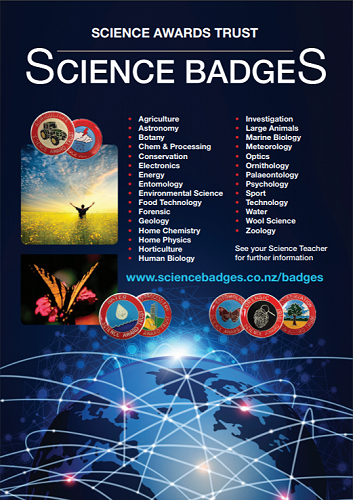Maths and Science Badges
By William Terry, Chia Omidi and Ryan Golby (Room 13) | Posted: Wednesday June 19, 2019
This article is on the Maths and Science Badges which is an extra curricular activity for children who want to challenge themselves.
Maths Badges
Last term, there were 18 people to get a Maths Badge and this term there are 32 people on their way to get one, that's almost double the amount of last term! Students should sign up for a Maths Badge to challenge themselves and it isn’t based around normal Maths, instead of that it has types of Maths like the ones down below. By the way it counts towards your Casebrook Challenge, so you would only have to do your Reading and MathsBuddy tasks, that means you get a Gold Badge and Maths Badge! The benefits of doing a Maths Badge are learning about different types of Maths and improving your math knowledge, you also get a badge.
Here is a list of the types of Maths Badge: Dynamic Number, Number Whiz, Math Medley, Technology, Travel, Time, The Outdoors, Sport, 3-D Shape, 2-D Design, Games & Puzzles, Me,Myself & I, Cultural Maths, Cost Of Living, Cooking Tech, Cracmac Topics, Number Star, Number Nut, Number Cruncher and Maths Smart.
Nicola from Room 13 earned a Maths Badge this term. What she liked most about it was you learn different types of maths like the ones stated above and there were only six tasks.
Science Badges
The Science Badges are an extracurricular activity for children who want to challenge themselves instead of a maths badge.
The badges you can choose from are Agriculture, Astronomy, Botany, Chem and Processing, Conservation, Electronics, Energy, Entomology, Environmental Science, Food Technology, Forensic, Geology, Home Chemistry, Home Physics, Horticulture, Human Biology, Investigation, Large Animals, Marine Biology, Meteorology, Optics, Ornithology, Paleontology Psychology, Sport Science, Technology, Water, Wool Science and Zoology.
As you can see there are a lot of choices for the science badges which one you choose is up to you.
Now it's time to do the math.
Overall 41 people have signed up for science badge this year and so far only 10 have succeeded in receiving it in their chosen topic (see above). The science badge requires 20 “stars” in order to acquire. The activities range from 1-3 “stars” depending on their difficulty. One of the hardest things in the science badge is time management.The most skilled students have earnt six badges in a year in a half. The science badge has been in the curriculum since 2007 when Mrs Johns started teaching here at Casebrook.
William Terry from Room 13 earned a science badge this term and what he liked most about it was the wide range of tasks to do.
Written by William Terry, Chia Omidi and Ryan Golby (Room 13)


